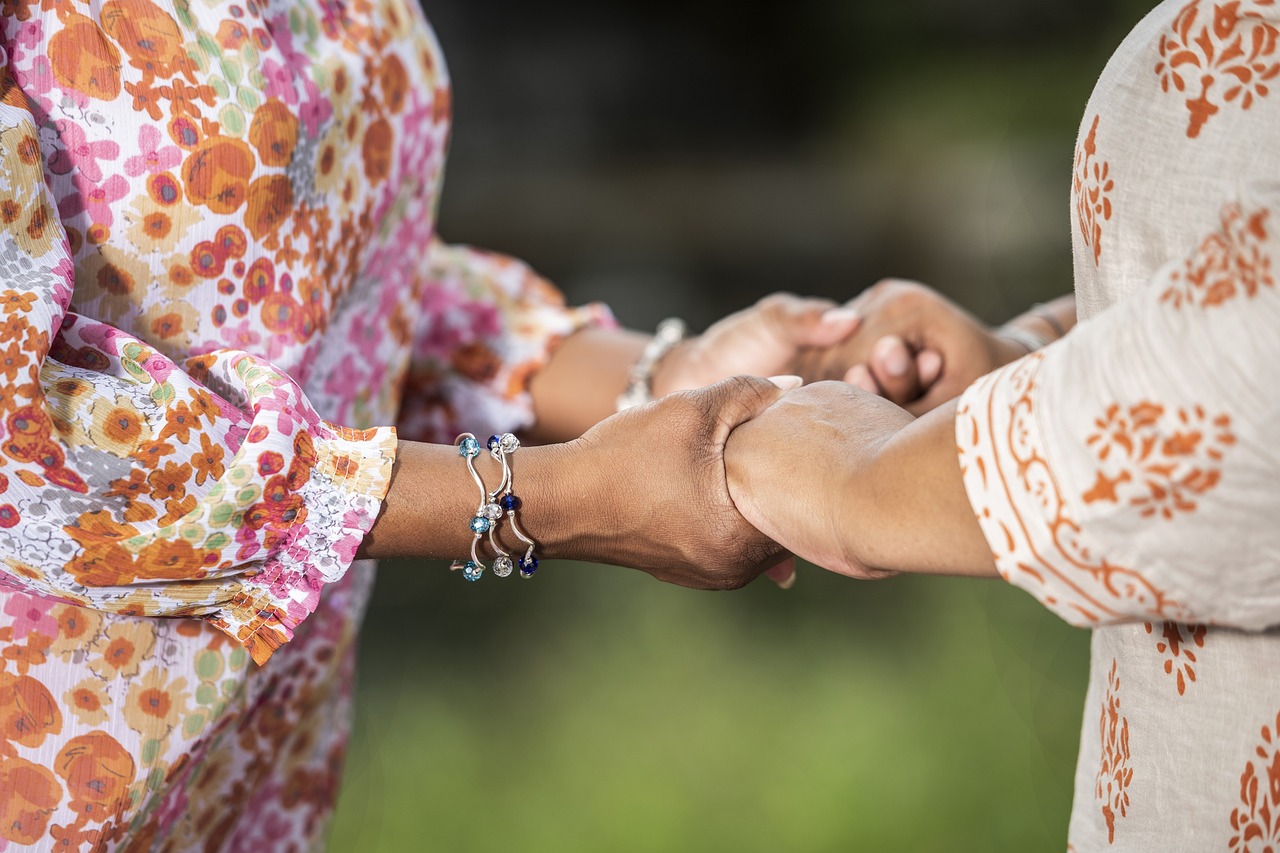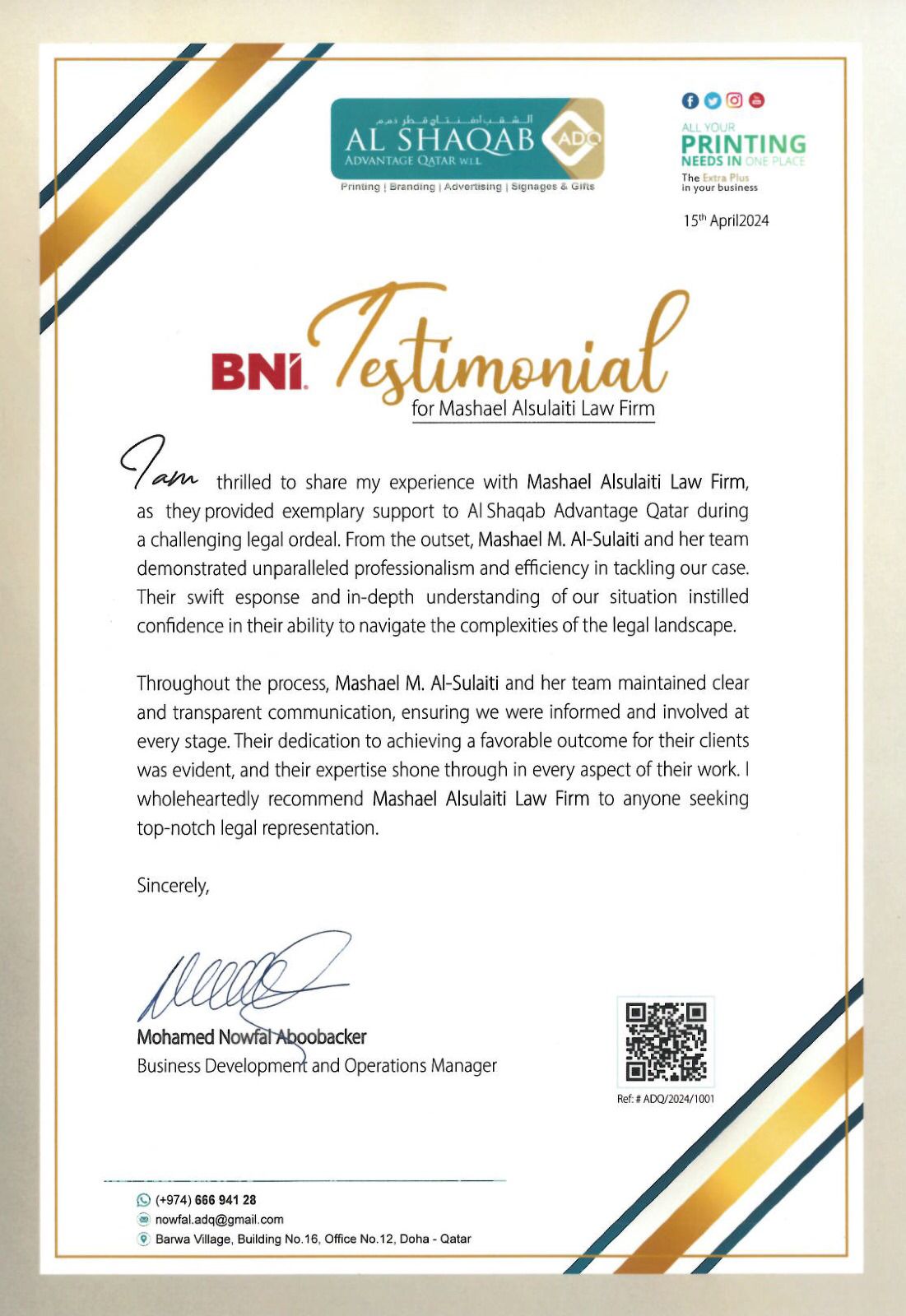Women's Rights: A Comprehensive Guide to Legal Protections in Qatar

Qatar is progressively advancing towards gender equality through the implementation of laws designed to safeguard women's rights and ensure equal treatment for all. The nation’s legal landscape, encompassing constitutional mandates, labor regulations, criminal laws, and personal status codes, underscores Qatar’s dedication to fostering a just society. Below, we explore the pivotal legal provisions that illustrate Qatar's commitment to gender equality.
Historical Development of Women's Rights in Qatar
Since gaining independence in 1971, Qatar has embarked on a journey to promote women's rights. The adoption of the Qatari Constitution in 2004 marked a significant milestone in this journey, entrenching the principle of gender equality in rights and duties. The post-millennium period has seen a series of legal reforms aimed at improving the status of women in Qatari society, ensuring that they are protected under the law and granted equal opportunities in various spheres of life.
Constitutional Safeguards for Equality
At the heart of Qatar's commitment to gender equality is the 2004 Constitution, which unequivocally states in Article 35 that "all individuals are equal before the law, and discrimination on grounds of sex, race, language, or religion is prohibited." This foundational principle ensures that both men and women enjoy equal rights and protections under the law, setting a strong precedent for gender equality in the nation.
Labor Laws: Championing Equal Opportunities Qatar's Labor Law of 2004 is a vital instrument in promoting workplace equality. Article 93 enshrines the principle of equal pay for equal work, mandating that women receive the same remuneration as their male counterparts for performing the same tasks.
Additionally, the law guarantees women the same opportunities for career development and advancement, fostering an environment where gender does not hinder professional growth. Moreover, the Labor Law protects women from unjust dismissal related to pregnancy. Article 98 specifically prohibits employers from terminating a woman’s employment due to pregnancy, ensuring that women can pursue their careers without the fear of losing their jobs during such a crucial time.
Criminal Law: Defending Women and Girls Qatar’s criminal statutes provide strong protection against gender-based violence and sexual offenses, reinforcing the country’s stance on safeguarding women and girls.
● Rape: Article 279 of the Penal Code criminalizes rape, with stringent penalties, including the death penalty in cases of aggravated circumstances, such as the rape of a minor by a relative. This law underscores Qatar’s zero-tolerance approach to such crimes.
● Sexual Harassment: Qatar's legal framework also addresses sexual harassment with seriousness. Article 291 of the Penal Code criminalizes offensive comments, sounds, or gestures directed at women and girls, offering them legal protection against such misconduct.
● Human Trafficking: In 2011, Qatar took a significant step in combating human trafficking by enacting a comprehensive law that imposes penalties of up to 15 years in prison for traffickers and provides protective services for victims. This law reflects Qatar's firm commitment to eradicating human trafficking and protecting vulnerable individuals.
Personal Status Laws: Protecting Parental Rights Qatar's personal status laws also play a crucial role in promoting gender equality, particularly in matters of family law. Following a divorce or separation, the mother is granted custody of her sons until they reach the age of 13 and her daughters until they turn 15. This provision acknowledges the critical role of mothers in the upbringing of their children and ensures their continued care during these formative years.
Women in Public and Political Life In recent years, Qatar has made notable strides in increasing women's representation in public and political life. Women have assumed key positions in government and public institutions, including the Shura Council and various ministries. The Qatari state actively promotes women's participation in decision-making processes through a range of legal and social initiatives, reflecting a broader commitment to gender equality and empowerment.
Commitment to International Conventions Qatar’s dedication to women's rights extends beyond its national borders. The country is a signatory to several international conventions on women's rights, including the Convention on the Elimination of All Forms of Discrimination Against Women (CEDAW). Qatar is committed to aligning its national legislation with these conventions, striving to ensure that women's rights are upheld and that gender equality is achieved in all aspects of life.
Challenges and Future Prospects Despite the significant progress made in the field of women's rights, challenges remain in achieving full equality in Qatar. Cultural and social barriers can sometimes impede the full implementation of certain legislation, reflecting the complex dynamics at play in any society undergoing change. However, the future holds promising prospects for further advancements. By continuing to strengthen the legal framework and supporting community initiatives, Qatar is well-positioned to overcome these challenges and make even greater strides toward gender equality.
Qatar's journey toward gender equality is marked by significant legal developments that safeguard women's rights and promote their participation in all aspects of life. While challenges remain, the country's commitment to aligning with international standards and its efforts to foster a more inclusive society are clear indicators of the progress being made. As a law firm dedicated to upholding justice and equality, we recognize and support these ongoing efforts and remain committed to contributing to the realization of full gender equality in Qatar
Recent News
- H.H. the Amir Issues Landmark Amendments to the Civil Human Resources Law to Strengthen Incentives and Government Excellence
- تطور تشريعي يعيد رسم ملامح مهنة المحاماة في دولة قطر: أبرز ملامح التعديلات الواردة بالقانون رقم (19) لسنة 2025
- A New Era for Qatar’s Legal Profession: Key Reforms Under Law No. 19 of 2025

